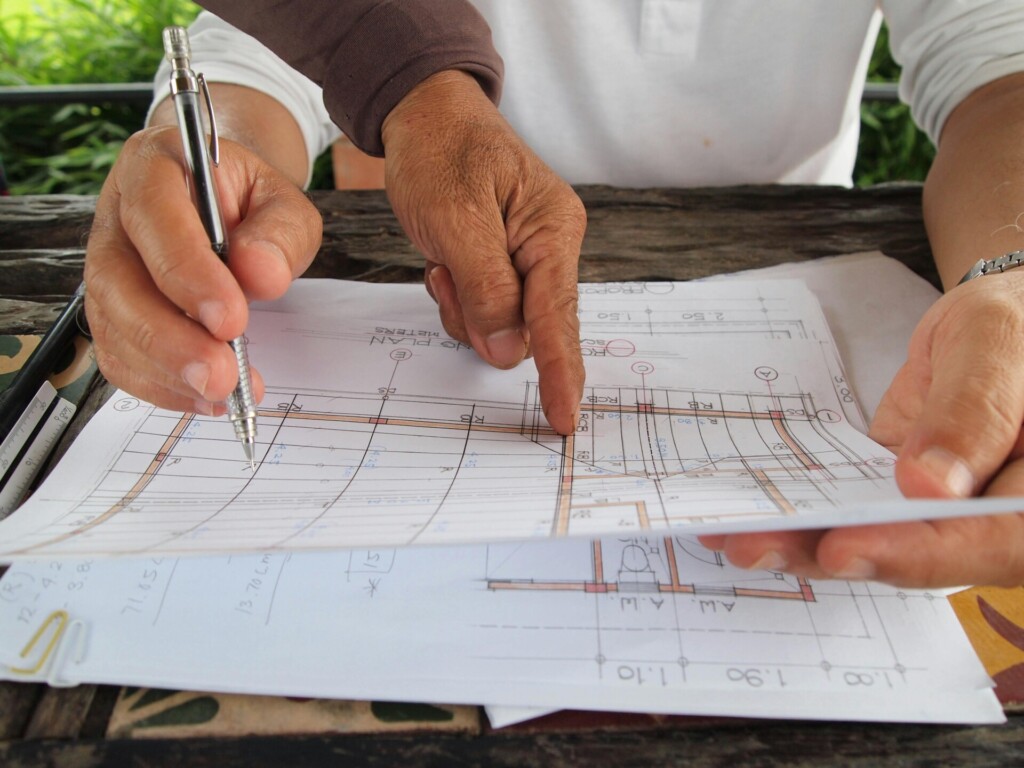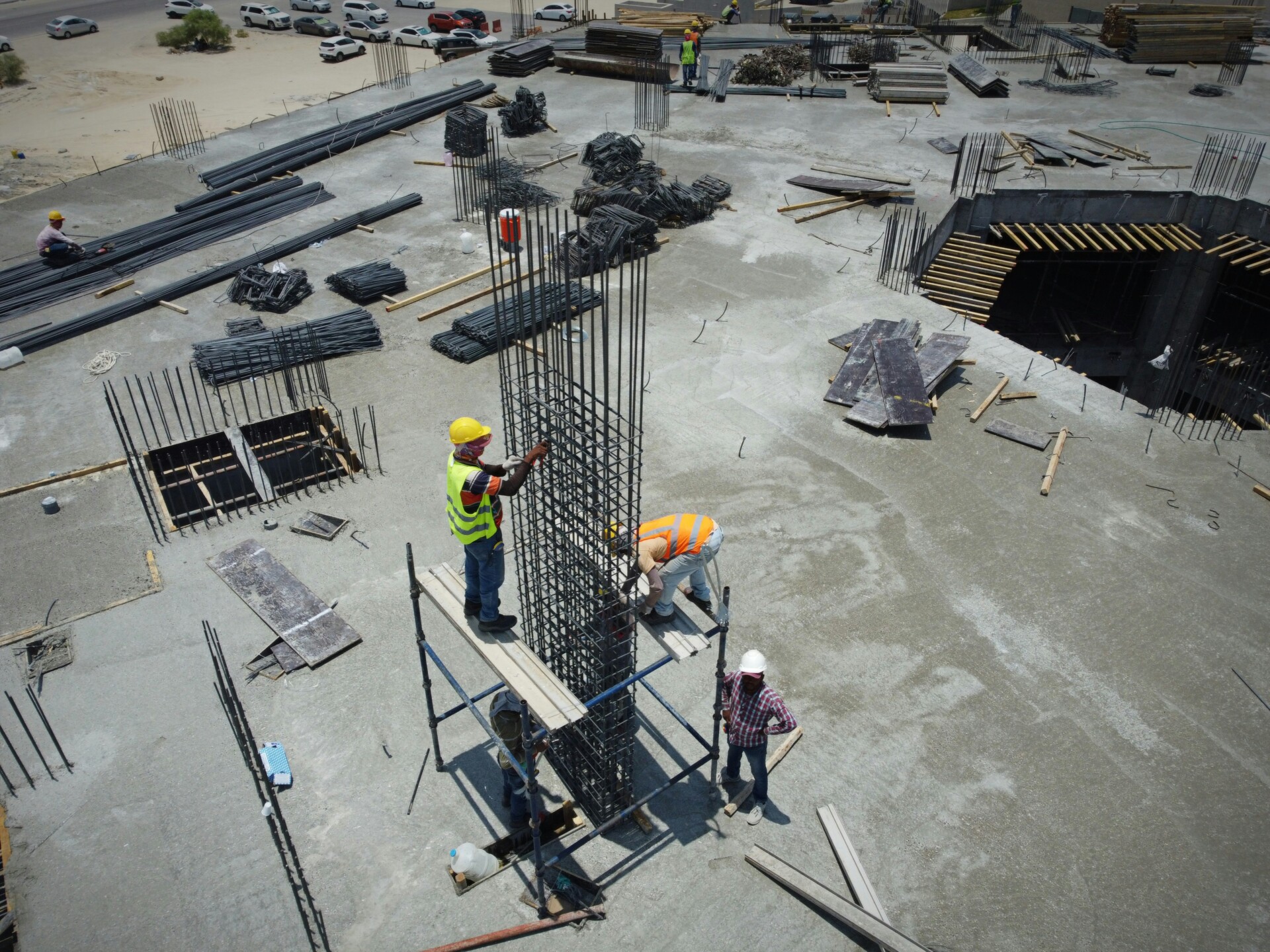General contractors in San Antonio handle both residential and commercial construction projects across Bexar County. The market includes thousands of licensed professionals who manage everything from interior finish-outs and ground-up builds to complex remodels and design-build projects.
Local regulations shape how these contractors operate. San Antonio registers contractors through Development Services, requires permits for many projects, and sets specific insurance minimums for different contractor types. Understanding these requirements helps property owners scope work accurately, evaluate bids effectively, and establish realistic project timelines.
Which Contractor Registrations And Building Permits Apply In San Antonio?

San Antonio operates two distinct contractor registration categories based on project scope and complexity. The city distinguishes between structural work requiring specialized oversight and non-structural improvements that pose fewer risks to building integrity.
Residential Building Contractor Registration
Residential Building Contractors handle projects involving structural changes or new construction. This registration covers new residential builds, home additions, structural remodels that affect load-bearing elements, foundation repairs, and detached accessory buildings exceeding 400 square feet. We see these contractors managing complex projects where structural integrity and code compliance are critical factors.
The registration process requires liability insurance with specific minimum coverage limits. Contractors must maintain at least $400,000 per occurrence for combined property damage and bodily injury, $1,000,000 aggregate coverage, and $400,000 aggregate for products and completed operations. The bi-annual registration fee is $170, and the city requires an FBI background check but no formal exams or experience verification.
Home Improvement Contractor Registration
Home Improvement Contractors focus on limited repairs and non-structural alterations. Their scope includes modernizations, conversions, non-structural remodeling, and detached accessory buildings of 400 square feet or less. These projects typically involve cosmetic updates, minor repairs, and improvements that do not affect the building’s structural systems.
Unlike Residential Building Contractors, Home Improvement Contractors are not required to carry general liability insurance for registration purposes. They pay an annual fee of $150 for a two-year term and must complete an FBI background check, but the city does not mandate formal testing or experience requirements.
Building Permit Requirements
Building permits are generally required for new residential construction, room additions exceeding 1,000 square feet, any second-story additions regardless of size, and structural changes such as moving or adding walls and doors. The San Antonio Development and Business Services Center issues all permits within city limits.
The party who pulls the permit assumes responsibility for ensuring code compliance throughout the project. This responsibility includes coordinating inspections, meeting building standards, and addressing any code violations that arise during construction. Property owners should understand this liability when deciding whether to pull permits themselves or have their contractor handle the permit process.
Questions about specific permit requirements or registration details can be directed to the Development and Business Services Center at 210-207-1111. The city staff can clarify whether your project requires permits and which contractor registration type applies to your specific scope of work.
What Services And Project Scopes Do Local General Contractors Handle?
General contractors in San Antonio offer distinct service portfolios for residential and commercial clients. The residential market drives significant activity, particularly in kitchen renovations, bathroom upgrades, and structural modifications. Commercial work centers on tenant improvements and new construction projects that support the city’s growing business community.
Residential Construction Services
Residential contractors handle interior finish-outs that transform raw spaces into livable homes. Kitchen remodels represent a major segment, with local projects typically ranging from $20,000 to $50,000 depending on appliance selection, cabinet quality, and layout changes. Bathroom remodels span a broader cost spectrum, from simple shower rebuilds at $1,000 to $5,000 up to complete luxury renovations exceeding $30,000.
Home additions require more complex coordination and permitting. Foundation additions and room expansions often exceed $50,000, while simpler attic storage additions cost significantly less. According to local cost data, residential projects show substantial variation based on materials and scope, with multi-room remodels reaching $100,000 or more for comprehensive renovations.
Load-bearing wall work requires structural engineering and careful permit coordination. We frequently manage these projects alongside foundation repairs, roofing installations, and flooring replacements. Insurance restoration work has grown significantly, particularly after severe weather events that affect San Antonio’s housing stock.
Commercial Construction And Tenant Improvements
Commercial tenant improvements dominate our commercial portfolio. These projects modify existing commercial spaces for new businesses or expanding operations. Retail finish-outs, office build-outs, and restaurant installations each require specialized knowledge of commercial building codes and accessibility requirements.
Ground-up construction projects involve complete building development from site preparation through final occupancy. These projects require extensive coordination with utility providers, city inspectors, and multiple specialized subcontractors. Design-build services integrate architectural planning with construction execution, streamlining project timelines and reducing coordination challenges.
Commercial projects typically involve higher material specifications and more complex mechanical systems than residential work. HVAC installations, electrical service upgrades, and plumbing modifications must meet commercial building standards while accommodating specific business operations.
Specialized Services And Project Complexity
Outdoor structures represent growing demand, from covered patios and decks to detached garages and workshop buildings. These projects often require separate permits and must comply with setback requirements and lot coverage limitations specific to San Antonio zoning codes.
Targeted repairs range from $5,000 to $20,000 and address specific issues like roof leaks, foundation settling, or electrical panel upgrades. These smaller projects often serve as entry points for larger renovation relationships with property owners seeking trusted contractors for future work.
Design-build services combine project design with construction management under single-source responsibility. This approach reduces conflicts between designers and builders while providing property owners streamlined communication and accountability throughout project completion.
How Should You Vet And Hire A General Contractor?

Collecting multiple bids creates the foundation for making informed decisions. We recommend requesting detailed proposals from at least three contractors to compare scope of work, project schedules, and payment milestones. Each bid should break down materials, labor costs, and timeline expectations so you can identify significant differences between contractors.
Written contracts protect both parties and clarify expectations. Every agreement should specify the exact scope of work, material specifications, start and completion dates, and change order procedures. Payment schedules typically follow project milestones rather than upfront demands, with final payment held until completion and final inspection.
Registration And Permit Verification
San Antonio contractor registration requirements vary by project type. Confirm whether your contractor holds the appropriate registration as either a Residential Building Contractor or Home Improvement Contractor based on your project scope. We verify registration status directly with the city before beginning any work.
Permit responsibilities must be established before construction starts. Some contractors handle permit applications as part of their service, while others expect property owners to secure permits independently. Clear agreement on this responsibility prevents delays and ensures the party pulling permits takes responsibility for code compliance throughout the project.
Insurance Certificate Review
Insurance verification protects against liability and financial exposure. Request current insurance certificates showing general liability coverage, and for Residential Building Contractors, verify they meet San Antonio’s minimum requirements. Workers’ compensation coverage protects against injuries on your property during construction.
We contact insurance providers directly to confirm coverage remains active and adequate for your project scope. Coverage amounts should align with your project value and potential risks associated with the work being performed.
Understanding Contractor Management
General contractors coordinate multiple moving parts throughout construction projects. We manage subcontractor scheduling, material deliveries, inspection coordination, and quality control across all trades. This oversight ensures work proceeds according to schedule and meets building standards.
Subcontractor management includes vetting trades, coordinating schedules, and maintaining quality standards across electrical, plumbing, HVAC, and specialty work. We handle material procurement, delivery scheduling, and waste management to keep projects moving efficiently.
Cost Considerations And Pricing Structure
Hourly rates for general contractors in San Antonio typically range from $30 to $85, with averages around $50 per hour. However, most residential and commercial projects use fixed pricing based on scope rather than hourly billing. Project complexity, material selections, and finish levels significantly impact total costs.
Per-square-foot pricing varies widely depending on project type and specifications. Kitchen remodels, bathroom updates, and structural work each carry different cost structures based on materials, permits, and labor requirements. Design choices and material upgrades often represent the largest variables in final project costs.
What Risks, Insurance Minimums, And Legal Safeguards Matter?
Registered Residential Building Contractors in San Antonio face specific insurance requirements. We must carry general liability coverage with at least $400,000 per occurrence for combined property damage and bodily injury. The aggregate limits require $1,000,000 for property damage and bodily injury, plus $400,000 aggregate for products and completed operations coverage.
Home Improvement Contractors operate under different rules. San Antonio does not require these contractors to carry general liability insurance for registration purposes. This distinction matters when we evaluate which registration type fits our project scope and risk profile.
Financial Protection Gaps
Texas lacks several common contractor protections found in other states. The state does not maintain a homeowner recovery fund, which means property owners cannot rely on state-backed reimbursement if contractors fail to complete work or cause damages. San Antonio also does not require residential surety bonds, removing another layer of financial protection for property owners.
These gaps place greater emphasis on verifying contractor insurance and financial stability before starting projects. We recommend confirming coverage through current insurance certificates rather than relying on registration status alone.
Mechanics Lien Exposure
Texas mechanics lien laws create potential liability for property owners. If contractors fail to pay workers or material suppliers, those parties can file liens against the property even when the owner has paid the contractor in full. This risk applies regardless of contractor registration type or insurance coverage.
Property owners can mitigate this exposure by requiring lien waivers as part of payment milestones. We also track subcontractor payments and material supplier arrangements to identify potential payment disputes before they escalate to lien filings.
Permit Compliance Consequences
Building without required permits carries multiple risks that extend beyond initial code compliance issues. Permit violations can result in immediate work stoppage orders and citation fines. The city may require removal and reconstruction of unpermitted work, significantly increasing project costs.
Long-term consequences include resale complications when buyers or inspectors discover unpermitted work. Insurance companies may deny claims related to unpermitted construction, leaving property owners exposed to damages and liability. We ensure all permits are secured before starting work and maintain documentation throughout the construction process.
Documentation proves critical for protecting all parties. We maintain copies of insurance certificates, permits, and lien waivers as standard project management practice. This approach helps prevent disputes and provides evidence of code compliance for future transactions or insurance claims.
Conclusion And Next Steps

Successful construction projects in San Antonio rely on securing the right contractor registration, obtaining necessary permits, and maintaining proper insurance coverage. We’ve seen how these three elements work together to create a foundation for project success and legal protection.
Start by defining your project scope clearly, then collect multiple bids from registered contractors who understand local requirements. Confirm who will pull permits before work begins, as this responsibility affects code compliance and project timelines. The San Antonio Development and Business Services Center serves as your primary resource for permit questions and regulatory guidance.
Use local cost examples as general guides, but remember that your specific materials, finishes, and project complexity will drive final budgets. Keep detailed records of all contracts, permits, and insurance certificates throughout your project. These documents protect both your investment and legal standing should disputes arise.
Ready to move forward with your San Antonio construction project? Contact EB3 Construction to discuss your project needs and ensure proper planning from the start.




